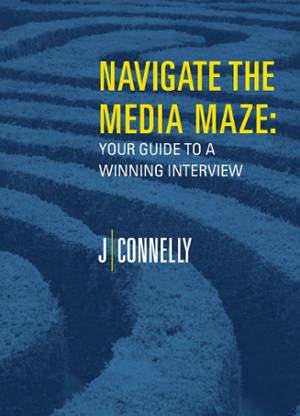
When it comes to reporters, there are certain offenses you should never commit: Lying, evading phone calls, and giving out inaccurate information top the list.
Those are good tips when interacting with any reporter. But there are some more nuanced tips firms can follow when dealing with the business press – proactive steps that will cultivate strong bonds with reporters and help generate some positive buzz.
1. Just Explain It
In the world of highly specialized business trade publications, journalists are often trying to illuminate an industry that can appear murky from the outside. Unlike political reporters, who can see the “sausage being made,” or crime reporters, who can respond to the scene with the help of a police scanner, business reporters have a much more limited view of the subjects they cover. They don’t have the same front row seat—they aren’t allowed in boardrooms or other internal meetings, and executives who aren’t paid with taxpayer money don’t have the same obligations to answer their calls.
Business reporters appreciate having a source they can trust to explain the complexities of their industry and interpret developments for them, so giving them a window into an issue is sometimes story enough. Consider reaching out to reporters to explain topics that tie into current events, such as the impact of rising interest rates on currencies or how lower gas prices may impact their bottom line. A reporter will not be interested in running your promotional sales pitch, but he or she might publish a clear, succinct explanation with some thoughtful articulation on a difficult topic.
2. Give Insight Into Your Operations
Reporters have a reputation for craving scandal and wrongdoing, but they also seek a window into the internal operations of firms to observe various practices. Think about it: when news of the Volkswagen emissions scandal broke, many reporters had to understand—and explain to their readers—how such a massive fraud could have occurred.
Those reporters didn’t just talk to the EPA—they called up related businesses, like Kelley Blue book, who got some positive publicity from the whole mess.
3. Show Off Your Industry Expertise
Every industry faces challenges that are universal. Perhaps change is coming in the form of technological disruption, new regulations or demographic transition. If you can offer recommendations on how to navigate shifting business environments, you can be part of a wider conversation and position yourself as a thought leader.
Ultimately, your expertise should be driving reporters to you, earning a “halo-effect” for your company. Be a source of illumination for reporters, and you just may find yourself in the spotlight more often.
Download our free ebook for more tips on how to nail your media interview:





Let’s Connect
Ready to build, grow, manage and protect your brand? Complete the form below to discuss how we can help.